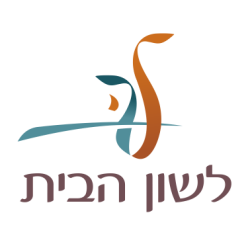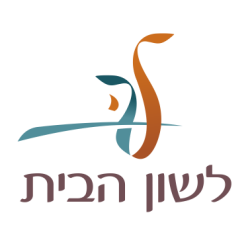Lullabies for children
In memory of my sister Janet and my mother Najia Rabiʿa, Z"L

The Preservation of Jewish Languages and Cultures in memory of Hayyim (Marani) Trabelsy
In memory of my sister Janet and my mother Najia Rabiʿa, Z"L


A: So they were not (involved) in… smuggling… the people
B: They didn't take money. They (just) assisted.
A: They assisted, yes
B: Yes. Anyone who wanted… they arranged a way (out) for him.
A: It's a pity that they were caught. It's a pity that they were caught.
B: Yes. That (smuggling from) Baṣġa was a disaster. A: How terrible was Baṣġa and its
B: I… I knew more or less all these boys. I used to go to my sister Widād. She was married (and lived) there. I used to go. They were all my age
A: Oh no! B: All of them were the same… age of mine. So
A: The one that they killed by hanging, a boy, they said (he was) 16 years old
B: This… Dawūd Ġāli, 1 Refers to Iraqi Jews that cooperated with the Jewish Agency and assisted Jews in being smuggled out of Iraq through the Iranian border. 2 Refers to 9 Jewish boys that were caught while trying to escape out of Iraq and were hung in Baghdad on January 27th 1969. (was) our neighbor. The other Dawūd, he…
.A: How many boys did they kill by hanging in Baṣġa? From the boys, They said that only one boy
C: No! How come only one boy? B: No! How come one? Six (or) seven. A: From the… from the Jews
B: Six (or) seve… Yes! C: Yes! What (did you think) then
B: Six (or) seven. (coffee is brought to the participants
D: This coffee didn't turn out good. You confused us with the talking and it boiled
C: What's that? D: The coffee. (back to the subject
A: (Just) a second! B: They had killed six (or) seven by hangin
A: Jews
B: Jews. They were eleven. Eleven (who were) hung at the same day. and I, I got out of the… at night we heard the… They said they are killing them by hanging. A: How terrible is !that /B: There was… a trial. Ok, I had… I had (to go to) my college. We lived in Masbaḥ, I had to go to Bāb ᵊl-Mˁad̠̟d̠̟am
A: I… (but) We are talking about Baṣġa. B: They hung them in Baghdad, In Sāḥǝt ᵊl-Taḥrīr
A: They brought Nāǧi Zǝlxa to Baghdad? B: They hung all of them in Sāḥǝt ᵊl-Taḥrīr. (Did you think) Otherwise
C: Yes. (Did you think) Otherwise? All of them. A: Not in Baṣġa? B: Which Baṣġa? (Rhetorically
C: No! A: Oh I wish their heads would come off! Oh let their name be erased
C: All of them in Baghdad. B: So I took one of these service taxis. I got out of the house I took a service taxi, (and) went to the college. I didn't know! How could I know? I saw that the streets look different. The people are troubled and so on. I got till Sāhǝt ᵊt-Taḥrīr. And I saw them hung in front of me
A: Oh no! (Literally: grief
B: Ok. I wouldn't go to the college anymore. (Rhetorically: who will go to the college anymore?) (Said to the taxi driver:) please let me get down! I got off, I made a turn from Sāhǝt ᵊt-Taḥrīr, (and) I went through Nid̠̟āl street, not through Saˁadūn street. I walked on Nid̠̟āl street and I went back, I went to Xālda's at the time.
Translation is provided by courtesy of Dr. Assaf Bar-Moshe
The recording took place at the Babylonian Jewry Heritage Center in Or Yehuda

I’ll tell you a joke.
I come to this man who had a phone and asked him: “How do I get to…” and he said: “Take a taxi”.
I am from Baghdad. I am not used to take taxies and I have 20 Dinars with me. The cucumbers are this big, and we buy 5-10 kilos in Baghdad.
I came to him after 1967. The moment he opened the door I saw he had a Star of David on his neck. He told me: "I was like that in Manchester, this is my girlfriend".
He asked me: “What would you like to drink?”
I said: "Tea"
He brought me a glass of water with hanging tea bag in a glass.
I asked him: “What is this?”
He told me: “It’s called tea bag…”
In memory of my sister Janet and my mother Najia Rabiʿa, Z"L


In memory of my parents, Victoria and Mʾeir ʿAbeda
The recording took place at the Babylonian Jewry Heritage Center

In memory of my sister Janet and my mother Najia Rabiʿa, Z"L


?A: šašša
Oh dear!
Every woman that gives birth,
in the sixth day (after the birthday),
for the purpose of the woman's health,
the woman and the child's,
they used to call the children,
and they used to distribute to them,
they used to mix seeds, and hummus (seeds), and almond, and pistachio,
they used to mix all this,
(and also) chocolate,
and they used to distribute it to the children.
This is called šašša.
and they used to break a jar,
or something of the kind (literally: see what they have).
(they used to take) its (broken) pieces,
they used to bring turmeric,
melt it with water,
and put it...
they used to spread the (broken) pieces (of a jar) with (this mixture, and give a piece
to) each one (of the children).
This is šašša.
B: What?
What did they do to the (broken) piece?
A: They used to bring this turmeric,
(and) to knead it,
and each child,
They used to spread his (broken) piece (of jar) with turmeric.
B: I have never heard of that.
I have never seen it.
C: Like henna?
A: Yes,
This turmeric is like henna.
B: And why did they use to do this?
A: (to protect) against the evil eye.
They used to do that on the sixth day (after the birth day).
B: Yes,
I know,
They used to do šašša,
But I don't know about turmeric.
A: They used to break a jar. (rhetorically: didn't they use to break a jar?)
B: Yes.
Of course. (rhetorically: otherwise?)
A: And they used to put it for them in the jar...
in the (broken) piece.
B: And they used to put corn (grains).
A: Corn (grains was put) with the šašša.
B: Yes.
C: And what is dǝqqāt?
B: Just a minute,
just a minute,
but...
What did they use to say?
šašša!
šašša!
A: Yes.
B: What did they use to scream?
What did they use to sing?
A: They used to sing:
šašša!
They children used to have fun.
"šašša and the house of their father is filled"1
.
The life in Iraq was really beautiful.
C: And what is dǝqqāt?
A: This was also on the sixth day,
either they used to bring talc,
or turmeric again.
they used to knead it as well,
and they used to (put it on the tip of their finger and to) hit (and paint) the wall with
it.
they used to make finger (shapes).
Seven dots.
This (was painted) against the evil eye over the head of the women (above her bed).

A: Ah, when she was born, at the time of birth, she (the mother) was cold, she was cold. Xālda (the mother). They brought her a hot bottle, they put it between her legs. Rimōn (the baby) came down, she fell down on the hot bottle. The hot bottle is very hot. And she is, naturally, "fresh meat". And she… got all burned. And she is crying and… that.
?B: How old was she
A: A second. She just came down.
B: Wow.
A: And she is crying. And they say, No, she doesn't have a thing. They, the small children, when… when they just come to the world they start crying. And then, what do they see? (Rhetorical – meant as a fact - this is what they see)
C: She was one day old or something. (only) one day.
A: What do they see? (Rhetorical – meant as a fact - this is what they see). And good that Alīza (the baby's aunt) was with her in the hospital. They are changing her, they bath her and are changing her, (to) Rimṓn. She was just… She told them: What is it? Alīza (said). They told her, No, nothing, there is nothing. And she, all of her, was burnt really severely. And there was a mess about her in the hospital, and they wanted to fire the nurses from the hospital because… they (almost) killed her, they damaged the girl. And poor her (she was) forty days in the hospital.
B: Wow. A: They brought her fish oil. Till (the blisters) really dried a bit, and they took her home. And poor her, (the burn scars) remained. A small baby. Maybe… she wasn't even 7 days old. Poor her, what she suffered. Wow.
In memory of my grandparents Jacob and Amuma Azar; In memory of my uncle Joseph, uncle Jehuda, aunt Samira, and uncle Sallaḥ, Azar. In memory of my aunt Pirḥa's husband, Isaac Jacob, and in memory of my mother, Daisy (Dalia) Abugoz-Azar.
